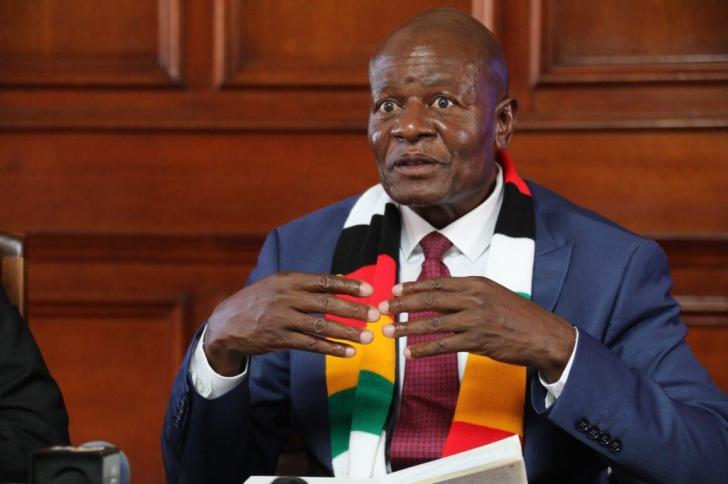News / National
Harare residents outraged over ban on pre-used clothes sales
07 Aug 2025 at 07:55hrs |
0 Views

Residents of Harare have voiced strong opposition to the government's abrupt ban on the importation and sale of second-hand clothes in the capital, describing the move as an "autocratic onslaught" that threatens thousands of livelihoods.
On Monday, Minister of Local Government and Public Works, Daniel Garwe, announced an immediate prohibition on both the importation of second-hand clothes and night vending activities within Harare's Central Business District (CBD). The announcement included a one-month ultimatum for vendors to clear their stocks and vacate the CBD before enforcement begins.
The ban has sparked fierce criticism from residents, civil society, and economists alike, with warnings that it could deal a significant blow to Zimbabwe's economy. According to the Zimbabwe National Statistics Agency, the informal sector accounts for 76.1% of operational businesses nationwide, highlighting the sector's critical role in sustaining livelihoods.
David Pasipanodya, Chairperson of the Combined Harare Residents Association (CHRA), condemned the government's decision as a breach of constitutional principles, specifically citing a violation of the devolution mandate under Section 264 of the Constitution.
"The ministry's intervention reflects a failure to implement devolution properly," Pasipanodya said. "Decisions affecting Harare should be made by the local authority, not imposed autocratically."
He stressed that the informal sector has long complemented the formal economy, and warned that the ban will devastate thousands who depend on informal trade for survival, especially amid a glaring shortage of authorized vending spaces in the city.
"The economy has already forced many into informal trade," Pasipanodya added. "This ban attacks their only means of survival without offering alternatives. The government must first address the root causes pushing people into informal work."
Pasipanodya called on the government to respect devolved governance by involving local councils in decision-making and urged consultation with the Ministry of Small and Medium Enterprises as well as direct engagement with affected traders.
Economists have also expressed concern that the ban could negatively impact Zimbabwe's gross domestic product by disrupting a sector that forms the backbone of economic activity for a majority of the population.
As vendors prepare to comply with the government's ultimatum, calls for dialogue and sustainable solutions to informal trade challenges grow louder across the capital.
On Monday, Minister of Local Government and Public Works, Daniel Garwe, announced an immediate prohibition on both the importation of second-hand clothes and night vending activities within Harare's Central Business District (CBD). The announcement included a one-month ultimatum for vendors to clear their stocks and vacate the CBD before enforcement begins.
The ban has sparked fierce criticism from residents, civil society, and economists alike, with warnings that it could deal a significant blow to Zimbabwe's economy. According to the Zimbabwe National Statistics Agency, the informal sector accounts for 76.1% of operational businesses nationwide, highlighting the sector's critical role in sustaining livelihoods.
David Pasipanodya, Chairperson of the Combined Harare Residents Association (CHRA), condemned the government's decision as a breach of constitutional principles, specifically citing a violation of the devolution mandate under Section 264 of the Constitution.
"The ministry's intervention reflects a failure to implement devolution properly," Pasipanodya said. "Decisions affecting Harare should be made by the local authority, not imposed autocratically."
He stressed that the informal sector has long complemented the formal economy, and warned that the ban will devastate thousands who depend on informal trade for survival, especially amid a glaring shortage of authorized vending spaces in the city.
"The economy has already forced many into informal trade," Pasipanodya added. "This ban attacks their only means of survival without offering alternatives. The government must first address the root causes pushing people into informal work."
Pasipanodya called on the government to respect devolved governance by involving local councils in decision-making and urged consultation with the Ministry of Small and Medium Enterprises as well as direct engagement with affected traders.
Economists have also expressed concern that the ban could negatively impact Zimbabwe's gross domestic product by disrupting a sector that forms the backbone of economic activity for a majority of the population.
As vendors prepare to comply with the government's ultimatum, calls for dialogue and sustainable solutions to informal trade challenges grow louder across the capital.
Source - Newsday
Join the discussion
Loading comments…
































